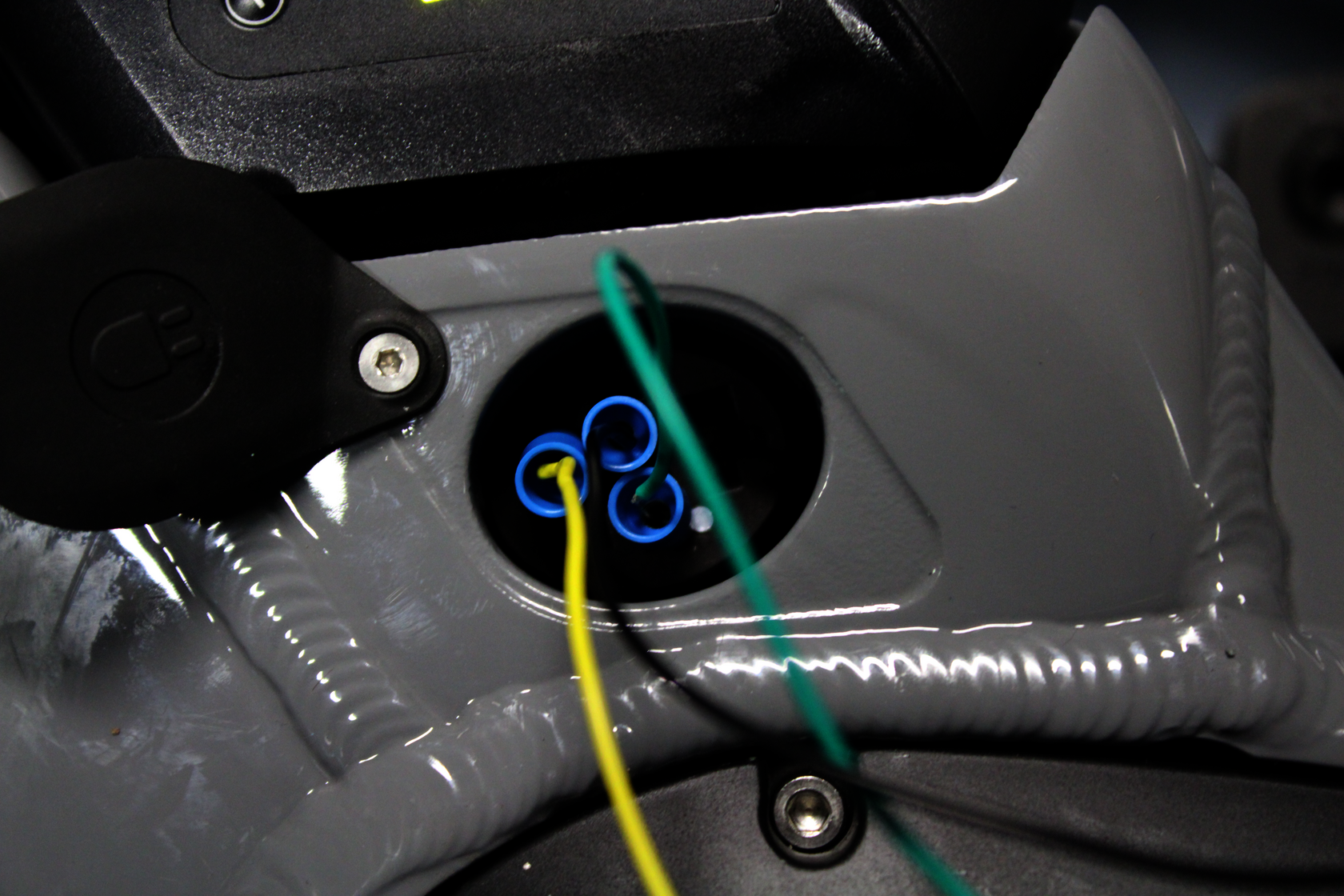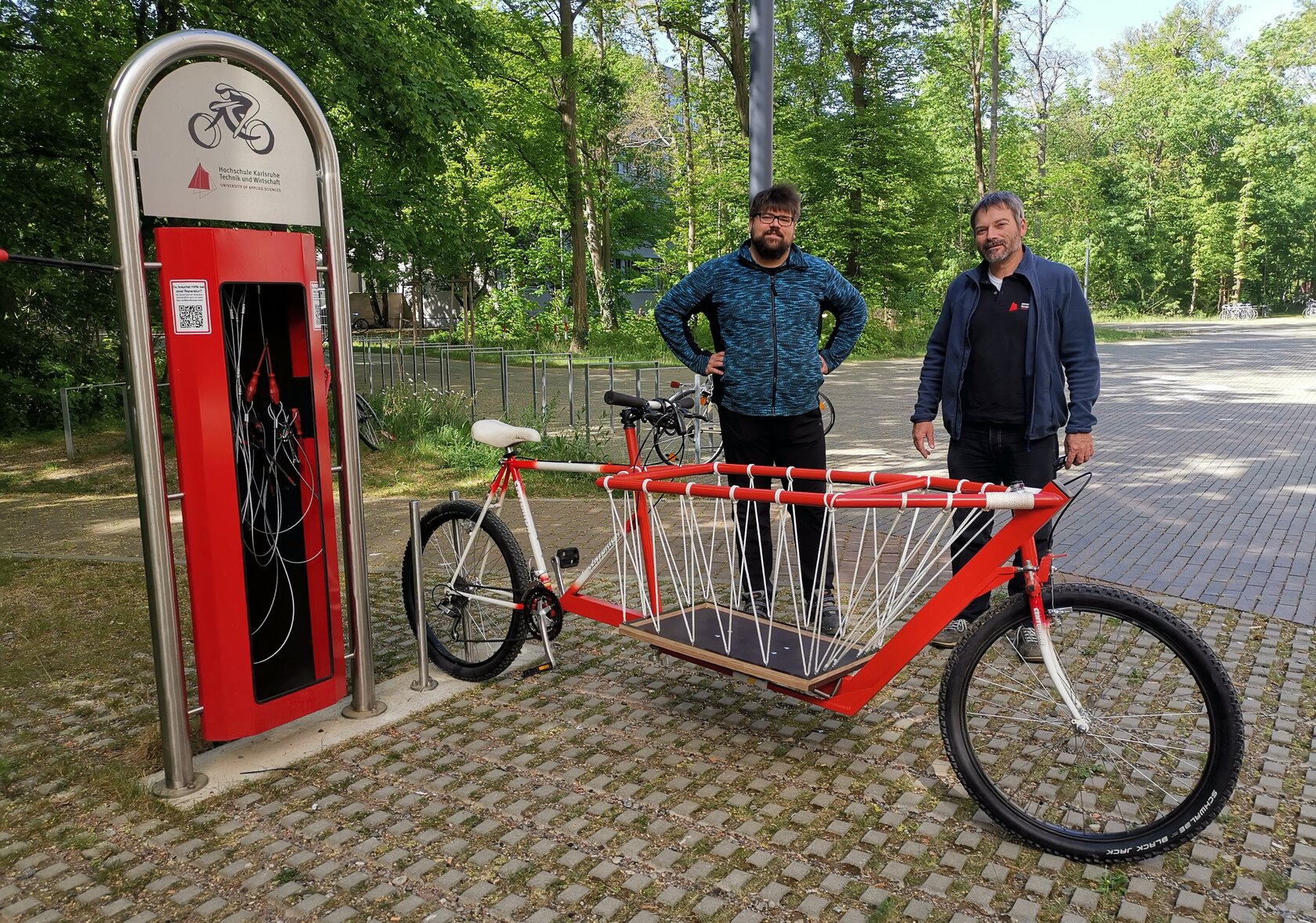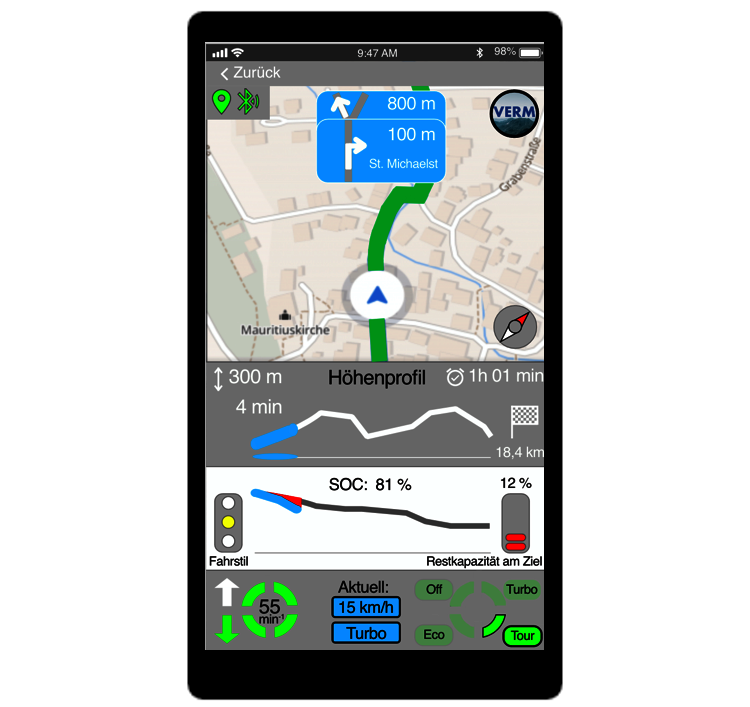
Tomorrow-Bike
Sustainable mobility requires the increased use of bicycles as an alternative mode of transport. However, an increased use will not succeed through the mere use of "simple bikes" and the marking of some cycle paths. Rather, technical innovations are also useful and necessary in this area in order to further increase the enjoyment and acceptance of this mode of transport. These innovations can primarily be made directly on the bicycle, as the boom in e-bikes and the increasing use of cycle computers and route planning apps show. But infrastructural aspects and the interaction of the cyclist with the environment also require innovative solutions. As an example, the design of a traffic infrastructure via intelligent simulators can be mentioned. The focus of the IEEM is on research and development of technical approaches for increased bicycle use.
More sustainability through technical solutions
Greater use of bicycles as a mode of transport goes hand in hand with new technical developments in this area. Analogous to the automotive industry, the bicycle itself is being developed with an emphasis on electric drives and, more recently, on greater connectivity of bicycles with the environment. It therefore makes sense to look at the development processes of the automotive industry (which has been facing the same trends for a long time) and to port sensible and successful approaches also for future innovations on and around the bicycle. Here, the simulative approach and the smooth transition to prototype systems are particularly eye-catching. Against this background, IEEM is working on new concepts for cycling in the following projects.

Bicycle simulator
The goal of the bike simulator is to enable virtual bike rides including an interaction of rider and bike mechatronics with its environment. For this purpose, a bicycle including a specially adapted roller device is coupled to a virtual reality environment simulation and the interaction of the environment (street scene, traffic...) and the bicycle takes place via technical interfaces such as drive torque, simulated gradient, steering angle, etc. The simulator can be used to test and simulate cycling. With the help of this bike simulator, test rides and validations for developments on the bike itself can be carried out on the one hand. On the other hand, defined and reproducible test rides can be used to predictively evaluate and thus optimise simulated traffic and road conditions from a cyclist's point of view.
Further information on the project Sim-Bike
Energy management for E-Bikes
The classification of battery energy for range-critical journeys - i.e. journeys where the battery energy is below or at the limit of the "available range" - still has to be done manually by the rider on current e-bikes. Building on an approach for e-vehicles, IEEM has realised an intelligent algorithm and a bike prototype that automates energy control on this basis.
Further information on the project Easy-E-Bike
Development of a distance sensor
IEEM is developing a technical distance sensor for measuring critical overtaking events. This sensor serves as an aid for designing roads for bicycle traffic.


Bicycle repair station & cargo bikes
As part of the redesign of the university campus, IEEM has installed a bicycle repair station on the campus and designed and developed cargo bikes to ensure the transport of goods using these modes of transport.
More about our Climate-positive campus.
Karlsruhe
Institute of Energy Efficient Mobility (IEEM)
Moltkestr. 30
76133 Karlsruhe
Post >
Institute of Energy Efficient Mobility (IEEM)
Postfach 2440
76012 Karlsruhe

![[Translate to English:] CAN-Zugriff und -Abgriff am Radprototyp](/fileadmin/_processed_/e/c/csm_20200503230759_IMG_8689_5cd33dc3eb.png)